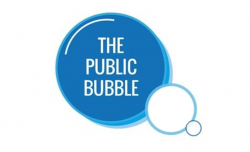With the recent release of the NHS long term plan, this was a timely talk on the
essential role that technology plays in ensuring that the NHS can sustain a world
leading service that is patient centred. Professor Young made it clear that the NHS
does not just seek to benefit from new technology that has already been developed;
they also seek to invent the future by being at the forefront of medical research. The
NHS is the largest healthcare employer in the wold giving a huge range of diverse
skills to call upon to support in a process of continue innovation.
A growing older population and the continuing trend of restricted funding means
that for the NHS to continue to be a world leading healthcare provider it must
change how it views staff, patients and the role of the hospital. A vast array of new
technology from apps that develop personalised exercise and diet plans to those that
from the tone of someone’s voice can predict a heart attack and suggest a course of
action; mean that it is now possible for highly specific preventive treatment to occur
at low cost to the NHS. While in terms of hospitals online GP apps and virtual reality
could reduce demand by helping people get treatment in their own homes avoiding
the need to come into hospital unless absolutely necessary. Professor Young argued
that the technology to deliver brilliant preventative care and support to people in
their own homes exists; the challenge then is not in developing new technology but
in working with people to ensure that the resources already available are adopted
and used to their fullest effect.
The focus on the human element of introducing new technology and practices was a
recurring theme throughout the talk; this was most clear when Professor Young
discussed the NHS’s new entrepreneur scheme. He argued that there was no
universal methodology for showing if new technology would result in cost savings,
improved outcomes or be used and that as such a methodology needed to be
developed. The model that he proposed is inspired by the start-up companies of
Silicon Valley. The NHS through the entrepreneur scheme gives clinicians a chance to
present ideas for innovation and then supports them to develop those ideas into a
start-up within the NHS. If the start-up is successful by saving money or improving
patient outcomes then it can be rolled out across the NHS with the start-up having
created an evidence base for justifying this. This model has already resulted in large
cost savings, improved patient experience, and the thing Professor Young was most
proud of was how it had encouraged clinicians to pursue a passion inside the NHS
where before the only option for them was to leave. Hence a brain drain has though
this scheme been turned into an opportunity to develop and harnesses the incredible ideas that innovators across the NHS have; in fact the scheme has been so successful
that Professor Young has hopes to open it up to patients as well.
Professor Young pointed to many examples of the great technology that had already
been implemented across hospitals from virtual reality allowing specialist surgeons
to talk through operations that were occurring across the world from them, a device
that could be attached to an iPhone to clear out earwax the number one cause of
social isolation, drones that could transport medical supplies, and a machine that
could predict if a stint would help regulate blood pressure before it has been put in.
These examples all showed that when innovators consider the human element of
introducing new technology and ensure that people are supported to adapt to
change then incredible things can be achieved. Throughout the entire talk it was
clear that the NHS plans to be a leading health service for innovation and that it will
achieve tis by giving staff and patients across the country the opportunity to share
ideas, develop new solutions, and to think creatively.
